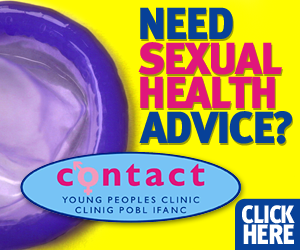Information » Health » Sexuality and Sexual Health » Periods & PMS
In This Section
Periods & PMS
Periods
- A period is when blood passes through the vagina. It begins during puberty, usually between the ages of eight and 16-years-old although most girls start their periods when they're about 12
- Girls are born with thousands of eggs inside their ovaries. When you reach puberty, one egg is released from the ovaries every month and it travels along the fallopian tube into your womb - see the Puberty section
- Each month your body prepares for the possibility of pregnancy and its lining becomes thick and soft, ready for a baby - see the Pregnancy section
- If the egg is not fertilised, the body lets the lining and the egg pass out of your body through your vagina as your period. The egg is too tiny to see with the naked eye
- The process will then start again. The time between one period and the next is known as the menstrual cycle and it can vary from person to person. It is usually around one month although in the first few years they can be a bit more irregular
- Periods will usually last between two and eight days, but everyone is different
- Getting your first period can be both exciting and scary so try talking to your mother, your guardian or a female adult, who can offer you advice and support
- A woman's periods continue until the menopause, which usually occurs in the late forties to mid-fifties
- Your body produces different amounts of hormones at different times during your menstrual cycle. This can cause changes in your body and your emotions
Sanitary products
- During your period, you will need to use sanitary products such as sanitary towels or tampons. These can be bought at any supermarket, local store and in some public toilets
- Towels (also known as pads or napkins) soak up the blood as it leaves your body by sticking to the inside of your pants
- Tampons fit inside your vagina to absorb the blood before it leaves your body
- It is a personal choice which sanitary product you decide to use
- Both towels and tampons must be changed several times a day, usually every four hours, and always wash your hands before and after
- If you experience a rash, sore throat, headache, sudden fever, diarrhoea or are physically sick, stop using tampons immediately and see your doctor right away – you may be suffering from a bacterial infection known as Toxic Shock Syndrome, which can be serious
Premenstrual Syndrome (PMS)
PMS is the physical, psychological and behavioural symptoms a woman can suffer from just before her period begins which tend to improve once bleeding starts. It affects one in three woman and is considered a medical condition
Symptoms
There are more than 150 symptoms of PMS including
- Depression and agitation
- Breast tenderness
- Fluid retention and bloating
- Mood swings and irritability
- Headaches
- Skin and hair changes (such as spots and greasy hair)
No-one knows the exact cause of PMS but it is thought to be linked to hormone changes in the body ahead of a period
There are ways to reduce the symptoms of PMS, including:
- A diet that is low in salt, fat and caffeine
- Vitamin B6 and E
- Flower oils such as Oil of Evening Primrose
- The contraceptive pill (speak to your doctor first)
If you suffer from extreme PMS or any of its symptoms, visit your GP.








